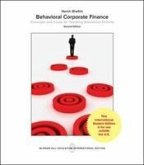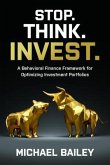For decades, finance has been regarded as a domain of precise numbers, mathematical theories, and rational models. From the Capital Asset Pricing Model (CAPM) to the Efficient Market Hypothesis (EMH), the belief in investor rationality and market efficiency has traditionally dominated academic and practical thinking. However, reality has always been far more complex. Markets are not cold mechanical cogs but living organisms driven by emotions, intuitions, and often irrationalities. This book arises from the need to explore this other dimension of finance: the human side. Why do investors tend to panic-sell during market downturns? What causes a financial bubble to inflate until it bursts? Why do we cling to a losing investment rather than accept a loss? Questions like these cannot be answered solely with numbers; they require an examination of the human mind and its behavior. The union of psychology with finance, known as behavioral finance, has revolutionized our understanding of the financial world. Visionary pioneers like Daniel Kahneman, Amos Tversky, Robert Shiller, and Richard Thaler have shed light on the emotional and cognitive forces that shape our economic decisions. This book will take you on a journey from the fundamentals of traditional finance to behavioral finance, explaining how biases and emotions challenge traditional models. However, we will not stop there. We are entering an era where artificial intelligence (AI) and big data are reshaping the rules of the game. AI can not only detect patterns in markets but also in human behavior, enabling the design of hyper-personalized financial strategies based on emotional analysis. What does this mean for the future of finance? Are we facing a tool for improvement or a Pandora's box with ethical and social implications? This book does not aim to offer definitive answers but rather invites you on a journey of discovery. We will explore how traditional finance has evolved, how biases, emotions, and bounded rationality shape critical decisions, and how technology is transforming the financial landscape. The reader will find both theory and practical cases here, from historical bubbles to cryptocurrencies, as well as the impact of AI on financial management.
Bitte wählen Sie Ihr Anliegen aus.
Rechnungen
Retourenschein anfordern
Bestellstatus
Storno




